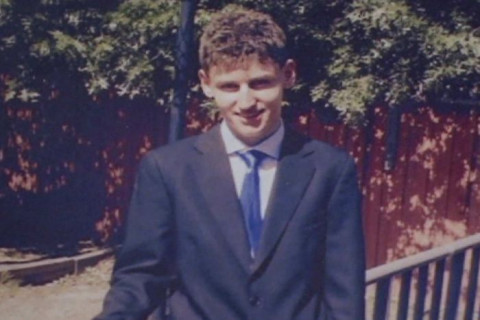
A Melbourne man with a profound intellectual disability and autism, who was accused of assault and then left in a high-security prison because there was nowhere else for him to go, has had his charges dropped by Victorian prosecutors.
Francis was sent to prison because no service provider under the National Disability Insurance Scheme (NDIS) would take him.
He spent two months behind bars and was granted bail in October last year after the ABC's 7.30 program revealed he was spending 23 hours a day in lockdown at the high-security Melbourne Assessment Prison.
"It's been horrific," said his mother, Janet.
"I wouldn't want anyone to go through what we've been through."
Although he has been out of custody for months, the experience of being behind bars has had a lasting impact on Francis.
He now has to live in a locked house with a wall separating him from his carers, under modifications made make him feel safe outside of prison.
 Photo: Francis has complex needs and needs 24-7 care. (Supplied)
Photo: Francis has complex needs and needs 24-7 care. (Supplied)
His house has a wall with perspex windows running through it and on Sundays, Francis' parents speak to him through a door with a perspex flap, which is how things are also passed to him.
"Essentially he is on one side of the wall and the carers are on the other side of the wall and there is a plan that that will gradually be reduced over time," said his legal aid lawyer, Lucy Geddes.
"It's certainly a restrictive environment, but we say that it's better than jail."
Jailhouse conditions to help transition
Ms Geddes said Francis' transition to the outside world had been difficult because of the restrictions he experienced in prison.
"He was isolated from other prisoners, nearly at all times, he was subject to handcuffing," Ms Geddes said.
"The clinical view is ... that because he was subject to such intense restrictions while he was custody, there needs to be a step-down approach to reducing those restrictions.
"At the moment what that means is he's living in a house which is locked, so he isn't able to leave unless he's given permission to by the caring staff and there's also a wall that is separating him from the caring staff."
 Photo: A wall with perspex windows has been installed in the home Francis is living in to separate him from his carers. (Supplied)
Photo: A wall with perspex windows has been installed in the home Francis is living in to separate him from his carers. (Supplied)
Francis' mother, Janet, said her son struggled to comprehend why he was in prison.
"He was really frightened, really scared," she said.
"If you'd asked him, he wouldn't even be able to tell you how long he was there.
"A few times they were able to get him to the courts, he'd sit in the van, they couldn't get him out."
'It's lucky the Government intervened'
Francis was sent to prison after assaulting a woman on the street, shortly after breaking out of care.
According to his lawyers, he was being forced to live in "squalid" conditions with no furniture, stains all over the walls and only a single mattress on the floor.
Francis' case has raised serious concerns about gaps in the NDIS, especially in instances where service providers are unwilling or unable to support profoundly disabled clients who are under the gaze of the criminal justice system.
Ms Geddes said Francis' case demonstrated the "fragility" of the NDIS transition.
"Francis is lucky because the State Government intervened," she said.
"There's just no guarantee that they get the services that they're funded to get and that they've been deemed and assessed as entitled to get.
"There's still no system in place, a 'provider of last resort' if you will, for people who are in positions where services aren't wanting to work with them."
She called for change.
"The criminal justice system and jail is not the place for Frances. This is not a case that requires a criminal justice solution, it requires a health solution," she added.